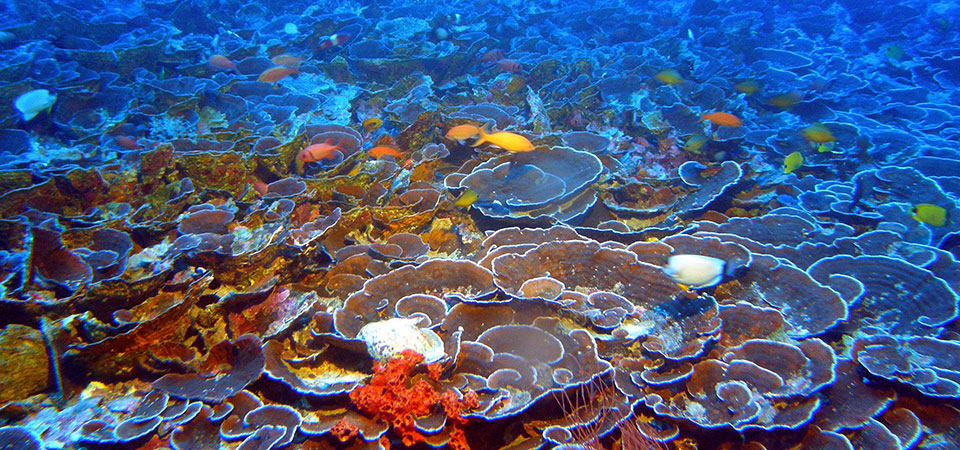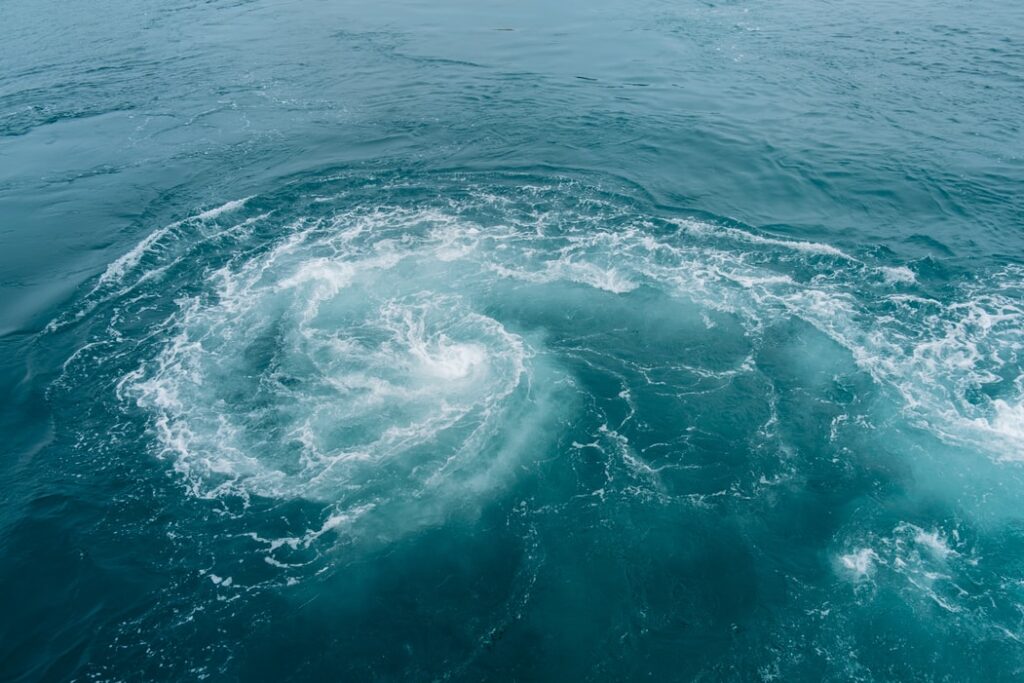The all-but-certain victory of Joe Biden and Kamala Harris in the U.S. election has the usual suspects very excited about the massive progress the world will now make toward stopping climate change, turning back the tide, reviving coral reefs, making hurricanes go away and so forth. As the Washington Post crowed on November 7, “A Biden victory positions America for a 180-degree turn on climate change”. (Does that mean CO2 emissions will reverse their long decline and start going up? But we digress.) One problem with winning is you’re expected to deliver. And when hopes are this high, they can tumble down hard.
Two years ago in Maclean’s, David Moscrop intoned that “If we don't rethink the concept of progress, it could point society toward oblivion”. Which is both lurid and vague, a combination we’ve come to expect and dread in this area. But Moscrop, who speaks with the full authority of a post-doc in Communication at the University of Ottawa, admits that having stuff is good. But alas it’s bad because it will do us in. “Our leaps forward have brought about a bunch of good things that we have more of, but plenty of attendant bad things we have more of, too—forest fires, floods, droughts.” As we’ve noted repeatedly, in the real world there are not more forest fires, floods or droughts. But in the humanities, a different version of reality prevails.
Predictably, in that version, “It’s with climate change that we encounter, perhaps more than in any other issue, the ambiguous nature of how we understand progress. For instance, the Industrial Revolution was a leap forward that improved innumerable lives, but it simultaneously made innumerable lives of those who served it miserable; it was also a big step on the road to climate change. The rise of mass industry and production also represented the rise of the mass burning of fossil fuels, the lead cause of anthropogenic climate change…. Climate change is an existential threat, the greatest ever faced by humanity. Its effects, unchecked, will upend our way of life. It will kill many millions of us, and it could also undermine democracy or even lead to its collapse…. according to a landmark report from the United Nations’ Intergovernmental Panel on Climate Change, restraining global warming to no more than 1.5˚C—the lower end of the vow from the signatories to the Paris accord—will still require major and immediate transformation, or we risk a high chance of a dire humanitarian crisis as soon as 2040.”
The solution, it turns out, is very simple. “So what if, instead of adopting progress as an inherently desirable and good thing, we started to figure out what we want and worked backward?” Which assumes that “we” all want one thing which happens to coincide with the alarmists’ utopia. But what if the list of “what we want” includes less green central planning?
Sorry, what you want doesn’t count. “Essentially: what if we made progress the servant of a moral goal, rather than a technological challenge or organizational puzzle? If we do this, we might conclude that we want billions of people to be able to live with comfort and dignity on this planet for hundreds and hundreds of years to come, to co-exist peacefully, and to love their family and friends.” And before lunch, world peace. But where is this comfort and dignity to come from?
Oh come now. You can fill in the blanks without effort: “Progress, then, depends on a structural transformation of our social, political, and economic structures in ways that will make them radically more diverse, inclusive, equal, just, and sustainable.” What we need is a structural transformation of structures. Specifics to follow whenever. But no doubt it will all be easy now.
Don’t just ask Moscrop. Ask NBC which, in an email teaser, said in the second presidential debate “Trump, Biden addressed environmental justice. One of them ‘missed the mark,’ expert says.” Ah, the expert who says. The news story to which that email teaser linked said “President Donald Trump and former Vice President Joe Biden were asked during the presidential debate about the unequal burden that people of color in the United States face from exposure to pollution, toxic substances and other environmental risks.” So we’re going to fix racism and climate change simultaneously. Who knew it was so easy?
Everybody who’s everybody, apparently. Following her landslide re-election, according to Eco-Business, “New Zealand’s re-elected Prime Minister Jacinda Ardern should use the skills she honed in successfully crushing the threat of Covid-19 to focus on a green recovery and help farmers tackle climate change’s “nuclear-free moment”, environmentalists said.” If you’re wondering about that nuclear-free bit, given that nuclear energy is the best hope of reliable affordable power without fossil fuels and Arden has indeed promised to get rid of coal-fired boilers in favour of “electric alternatives”, whatever that’s meant to mean (electric-powered electric power plants?), it’s a “thing” in New Zealand; “Ardern famously called climate change “my generation’s nuclear-free moment” in a 2017 speech. After decades of debate on whether the country should be a nuclear-free zone, a Labour government in the mid-1980s banned ships that were nuclear-powered or nuclear-armed, causing a security spat with the United States.” Though not with China because… um… never mind.
Unfortunately it’s not so easy. Greta Thunberg, who you might have thought had sailed back to school and gone away, was back in the news recently pushing a petition to have the EU retract a farming policy that promotes food growing without adding riders that make it effectively impossible. Well, given the habitual tone of the greens and Ms. Thunberg herself, it was a letter that accused politicians of “voting for a dirty deal, which betrays not only your commitments to the Paris Agreement, but also your commitments to justice and to democracy.” Whereas starving your people would be democratic? Perhaps we’d better have a vote on that one just to make sure.
The Washington Post story cited above, incidentally, did admit or possibly boast that Biden will “launch the boldest climate change plan of any president in history.” And while it conceded that Republicans in the Senate will try to prevent him from making “a 180-degree turn on climate change and conservation policy”, it insisted that he really does plan to squeeze out fossil fuels by blocking pipelines, making power generation carbon-free by 2035 and “mobilize other nations to make deeper cuts in their own carbon emissions.” And it said many factors were working in his favour including “Roughly 10 percent of the globe has warmed by 2 degrees Celsius (3.6 degrees Fahrenheit), a temperature rise the world has pledged to avoid. The price of solar and wind power has dropped, the coal industry has shrunk, and Americans increasingly connect the disasters they’re experiencing in real time — including more-intense wildfires, hurricanes and droughts — with global warming. Biden has made the argument that curbing carbon will produce high-paying jobs while protecting the planet.” Since it’s never happened before, why will it this time?
To take just one example of the painful conflict between promising utopia and delivering it, during the VP debate Kamala Harris said “Joe Biden will not ban fracking. That is a fact”. But Anthony Watts jumped on her over it, posting a set of clips in which Biden said over and over again that he would stop fracking, phase it out, get rid of it and so on. Which of course only means he said he’d do it. Harris could well be right that he won’t, and not only because the President can’t do such a thing single-handedly. He is not the Emperor.
The big problem is, in the real world of governing responsibilities, it would hammer the American economy in all sorts of areas and he and his party would get blamed. (CFACT challenged Biden just personally to go fossil-fuel-free for a month, which is obviously impossible.) But even the sober-minded among alarmists are not concerned that acting might bring drawbacks. As NBC added on Nov. 9, “climate experts knew the stakes in this election could not have been higher…. Now, experts say they are eager for the new president to get to work on tackling the climate crisis. But if Republicans keep control of the Senate, there may be challenges ahead as Biden tries to turn his plans into action.” Likewise Climate Home News, which first gushed “Joe Biden is almost certain to be the next president of the United States, ushering in a welcome return to engagement with the climate crisis after four years of denial”, immediately admitted that rejoining Paris would be “the easy part. Much harder will be delivering emissions cuts, after disappointing Senate results for the Democrats. They could yet scrape a majority — subject to a January run-off in Georgia — but do not have the 60 seats needed to pass a framework climate law. A Biden administration will have to get creative to submit a credible 2030 climate target to the UN next year, as required under Paris.”
Um yeah. Creative. But when you’ve made all these promises and raised all these expectations, in Biden’s case including a Clean Energy Plan that will spend trillions to get rid of fossil fuels entirely, what do you do?
According to Michael Mann, the Nov. 9 NBC article says, “Biden’s presidential victory favors ‘an atmosphere of global cooperation.’” Regrettably, though, “The sobering reality is that even if every country meets their commitment under Paris (and many, including the U.S. and E.U. are currently falling short), that gets us less than halfway to where we need to be. Paris is a good starting point, but we need to go well beyond Paris now to achieve the reductions that are necessary.”
In what direction? If only we knew.


